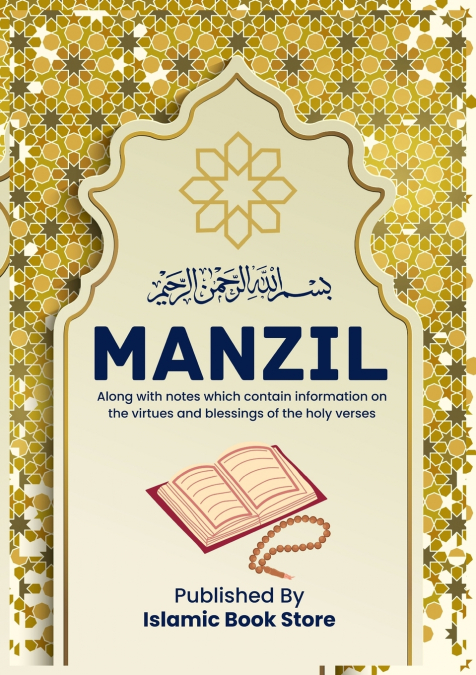
 Librería Desdémona
Librería Desdémona
 Librería Samer Atenea
Librería Samer Atenea
 Librería Aciertas (Toledo)
Librería Aciertas (Toledo)
 Kálamo Books
Kálamo Books
 Librería Perelló (Valencia)
Librería Perelló (Valencia)
 Librería Elías (Asturias)
Librería Elías (Asturias)
 Donde los libros
Donde los libros
 Librería Kolima (Madrid)
Librería Kolima (Madrid)
 Librería Proteo (Málaga)
Librería Proteo (Málaga)
IntroductionThis is a collection of Verses from the Qurān. In my family this was known as ’Manzil’. The elders of my family used to be very particular in using these verses in du’ās and treatments. The children of our family were made to memorise the Manzil at a young age.In place of amulets (that are permissible according to shariah), the veres of Qurān and those du’ās that are in the ḥadīth are much more effective and beneficial. When treating people one should be mindful of this.Rasulullah [PBUH] did not leave out any need of this world or the hereafter except that he taught a du’ā by means of which to resolve that difficulty. Experience has shown that there are certain verses when read while in a specific need or difficulty, Allāh will alleviate that difficulty.Manzil is a tried and tested practice for protection and cure from mischief, Sihr and other harmful things. These verses are compiled in Al-Qawlul Jameel and Beheshti Zewar. In Al-Qawlul Jameel Shah Wali-Ullah Muhadith Dehlawi has stated that 'there are thirty three verses that remove the effects of black magic and protect from shaytaans, thieves and wild animals'. In Beheshti Zewar, Maulāna Ashraf Thanwi [R.A] has said written that 'that whoever is fearful that that someone is afflicted they should have these verses written and hung on the person’s neck or that these verses can be recited and then the reader blow on some water and that water is sprinkled on the patient or that the water is sprinkled in the four corners of the house.'In our family, it was quite difficult for the ladies to read these verses for anybody that was sick or afflicted as they had to go through the Qurān and find the verses which were usually book marked. So to make things easy, a separate compilation was prepared.Treatments and du’ās are effective according to the manner the person is reading it. The more concentration, focus and love that du’ās are read with, the more effective they become. There are great blessings in the name and kalaam of Allāh.Hadhrat Maulān Muḥammad Talha al‐Kandahlawi son of Hadhrat Shaykh Maulāna Muhammed Zakariya Saahib [R.A]